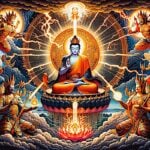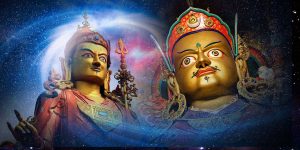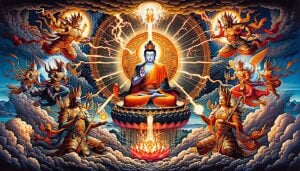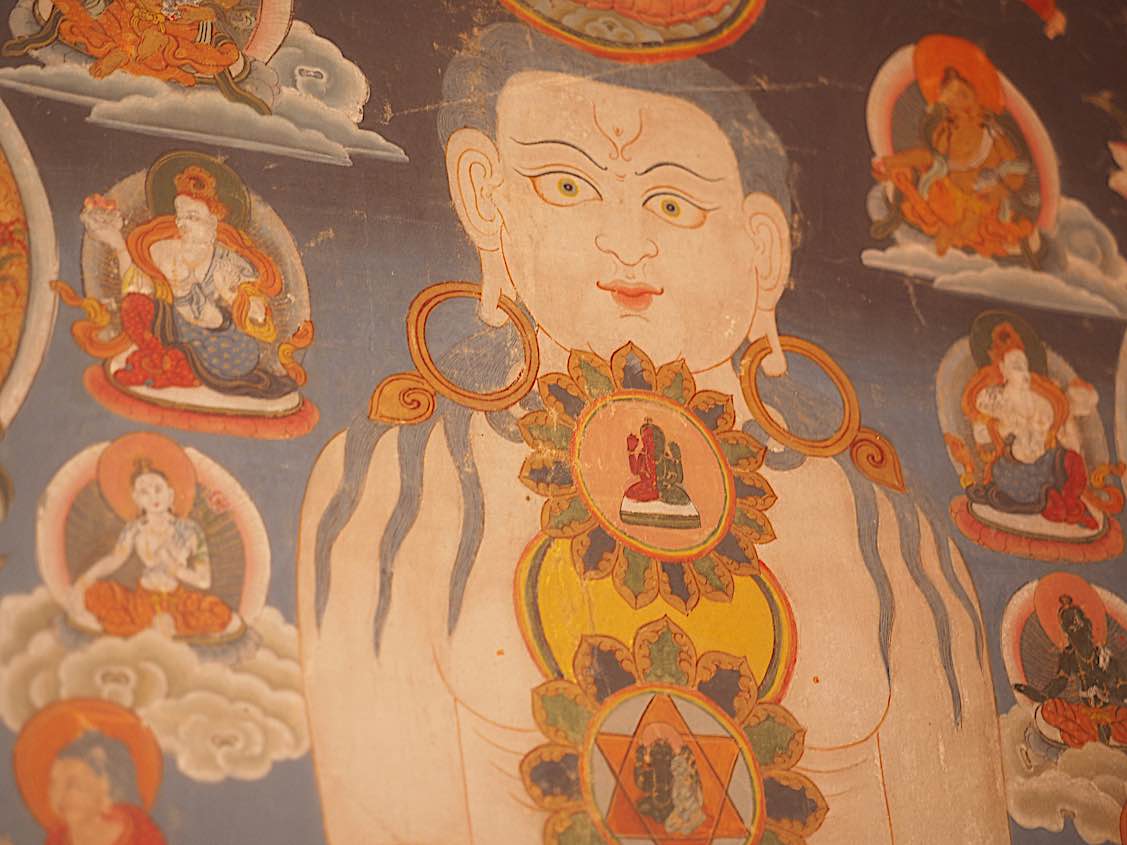Buddha’s Birthday: Vesak celebrated on May 26 2021 most important day of the year
Buddhism is characterized as generous, loving, and compassionate. In keeping with these beliefs, on Buddha’s “birthday” it is most important to give and celebrate love and kindness. Buddha, a living, breathing being who attained Englightenment (by archeological evidence, c 563 B.C. to 583 B.C. See timeline below) and who taught a path of wisdom and compassion.
To Buddhists, around the world, the most important day of the year is Vesak (Wesak) — a day set aside to honor not only the birth (circa 563 B.C.), but also the enlightenment (528 B.C.), and the Parinarvana of Guatama Buddha (483 B.C.).
Vesak falls on April 8 of the lunar year (the full moon! called the “Flower Moon”) — this year it will be May 26, 2021.
Although it may be celebrated at different times — due to the lunar calendar and cultural aspects — this year most Buddhists celebrate Vesak on May 26, 2021. [This day was established in 1950 by the World Fellowship of Buddhists. In 1999, the United Nations acknowledged Vesak internationally.]
On this day we celebrate not only the Buddha, but the Dharma and Sangha — the teachings and the community. Vesak is also known as Saka Dawa (Tibetan), Vesakha, Buddha Pumima, and Buddha Jyanti.
Traditional activities of generosity
Affectionately known as Buddha’s Birthday, we traditionally make extra efforts to help the unfortunate, poor, sick, and aged, and engage in karma yoga activities including cleaning and painting gompas and temples, painting thanks, and feasting on vegetarian food—all in homage to The Enlightened One.In many traditions and countries, today, May 25, is Wesak, although the date varies due to lunar calendar variances between cultures and traditions. In Theravada traditions, we typically celebrate on the full moon in the 5th or 6th month, while in China and Korea Buddha’s Birthday might be on the eighth of the fourth month in the Chinese lunar calendar.
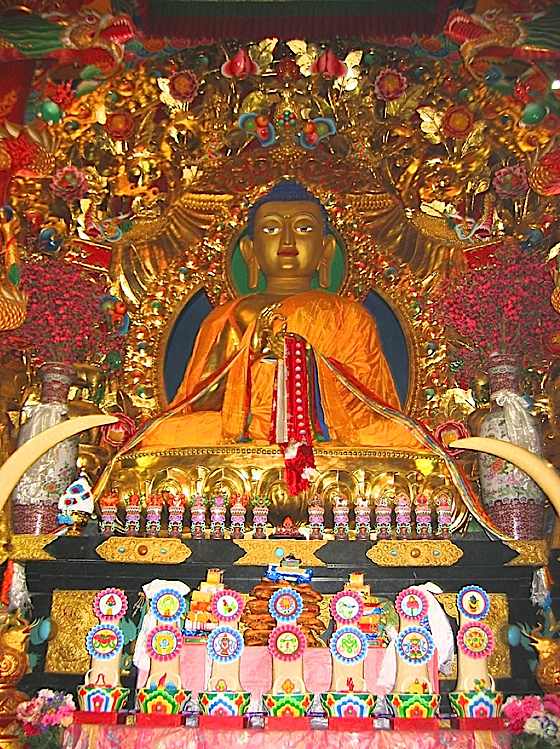
Celebrating Vesakha
Typically, devout Buddhists will assemble at a temple or gompa before dawn for ceremonies and honouring of the Holy Three Jewels: the Buddha, the Dharma (Buddha’s teachings) and the Sangha (the Buddhist disciples and followers). Traditional offerings of flowers, water, incense are laid at the feet of the Buddha. On this day, there can be no killing of any kind if possible, and most eat only vegetarian food for the day. Even if the devout Buddhist is a lay practitioner, on days such as Wesak, we typically observe the eight Precepts as training in morality and humility, rather than just the five lay precepts:
1. I undertake to abstain from causing harm and taking life of any kind/
2. I undertake to abstain from taking what is not given.
3. I undertake to abstain from sexual misconduct.
4. I undertake to abstain from wrong speech: telling lies, deceiving others, manipulating others, using hurtful words.
5. I undertake to abstain from using intoxicating drinks and drugs, which lead to carelessness.
The additional precepts on Wesak and other special ceremonial days (or for non-lay practitioners all the time) are:
6. I undertake to abstain from eating at the wrong time—the correct time is after sunrise but before noon.
7. I undertake to abstain from singing, dancing, playing music, attending entertainment performances, wearing perfume, and using cosmetics and garlands or decorations.
8. I undertake to abstain from luxurious places for sitting or sleeping, and overindulging in sleep.
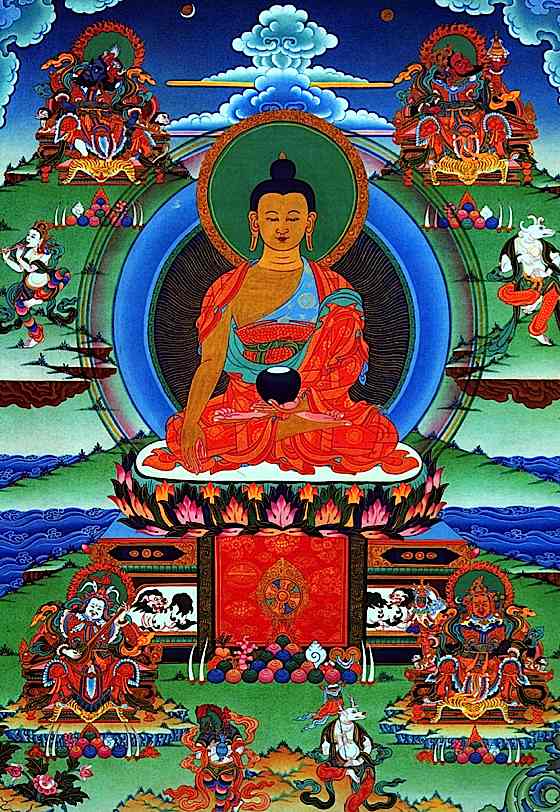
Homage to the Buddha
Guatama Buddha, the historical Buddha of our time, instructed us to pay homage to Him by sincerely following His teachings, the Dharma. Although offerings and flowers are respectful, genuine homage to Siddartha Buddha is conveyed by conduct. On Wesak, we renew our promises to follow the Dharma, to lead noble lives, to cultivate Bodhichitta, to develop wisdom, and—of overwhelming importance—practice loving kindness.
More articles by this author

Three Higher Trainings: ethics, concentration, and wisdom. Venerable Robina Courtin teaches the vitally important Three Precious Trainings in a weekend workshop in Toronto

“If you take meat, it goes against the vows one takes in seeking refuge … you have to take a being’s life.” — Kyabje Chatral Sangye Dorje
Search
Latest Features
Please support the "Spread the Dharma" mission as one of our heroic Dharma Supporting Members, or with a one-time donation.
Please Help Support the “Spread the Dharma” Mission!

Be a part of the noble mission as a supporting member or a patron, or a volunteer contributor of content.
The power of Dharma to help sentient beings, in part, lies in ensuring access to Buddha’s precious Dharma — the mission of Buddha Weekly. We can’t do it without you!
A non-profit association since 2007, Buddha Weekly published many feature articles, videos, and, podcasts. Please consider supporting the mission to preserve and “Spread the Dharma." Your support as either a patron or a supporting member helps defray the high costs of producing quality Dharma content. Thank you! Learn more here, or become one of our super karma heroes on Patreon.
Josephine Nolan
Author | Buddha Weekly
Josephine Nolan is an editor and contributing feature writer for several online publications, including EDI Weekly and Buddha Weekly.




